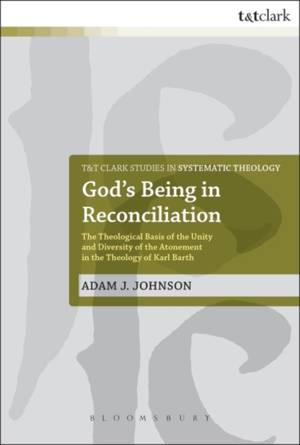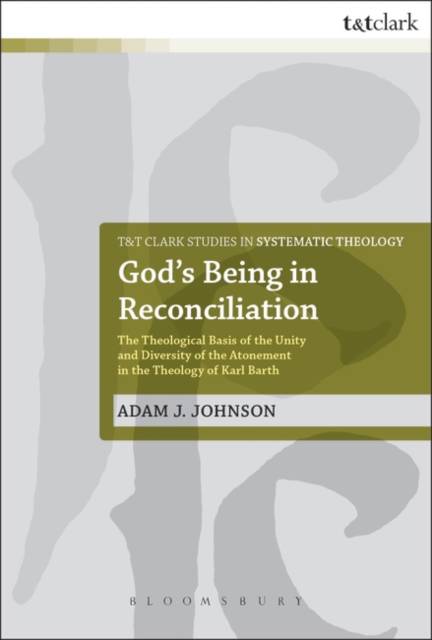
Bedankt voor het vertrouwen het afgelopen jaar! Om jou te bedanken bieden we GRATIS verzending (in België) aan op alles gedurende de hele maand januari.
- Afhalen na 1 uur in een winkel met voorraad
- In januari gratis thuislevering in België
- Ruim aanbod met 7 miljoen producten
Bedankt voor het vertrouwen het afgelopen jaar! Om jou te bedanken bieden we GRATIS verzending (in België) aan op alles gedurende de hele maand januari.
- Afhalen na 1 uur in een winkel met voorraad
- In januari gratis thuislevering in België
- Ruim aanbod met 7 miljoen producten
God's Being in Reconciliation
The Theological Basis of the Unity and Diversity of the Atonement in the Theology of Karl Barth
Adam J Johnson
€ 88,45
+ 176 punten
Uitvoering
Omschrijving
One of the most pressing issues in the doctrine of the atonement today is the question of the unity and diversity of the work of Christ. What are we to make of the diversity within the biblical witness and the history of doctrine when it comes to explanations of the meaning and significance of Jesus' death and resurrection? Without a grasp of the unity of his work, our understanding and use of the diversity runs the risk of becoming haphazard and disordered. Proposals regarding the unity of Christ's work today tend to focus on the metaphorical nature of language, the role of culture, and various possible conceptual schemes, rarely reflecting on unity and diversity proper to the being God.
To fill this gap, Johnson draws on Karl Barth's integrated account of the doctrines of God and reconciliation, harnessing the resources contained within the doctrines of the Trinity and divine perfections to energize a properly theological account of the unity and diversity of the atonement.
To fill this gap, Johnson draws on Karl Barth's integrated account of the doctrines of God and reconciliation, harnessing the resources contained within the doctrines of the Trinity and divine perfections to energize a properly theological account of the unity and diversity of the atonement.
Specificaties
Betrokkenen
- Auteur(s):
- Uitgeverij:
Inhoud
- Aantal bladzijden:
- 240
- Taal:
- Engels
- Reeks:
- Reeksnummer:
- nr. 15
Eigenschappen
- Productcode (EAN):
- 9780567123459
- Verschijningsdatum:
- 9/01/2014
- Uitvoering:
- Paperback
- Formaat:
- Trade paperback (VS)
- Afmetingen:
- 156 mm x 234 mm
- Gewicht:
- 331 g

Alleen bij Standaard Boekhandel
+ 176 punten op je klantenkaart van Standaard Boekhandel
Beoordelingen
We publiceren alleen reviews die voldoen aan de voorwaarden voor reviews. Bekijk onze voorwaarden voor reviews.









